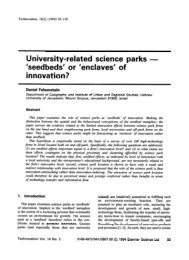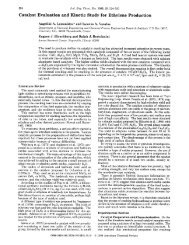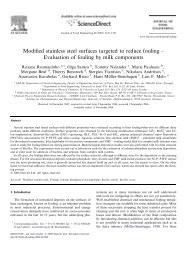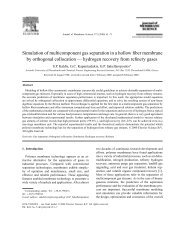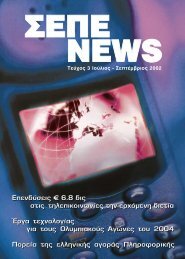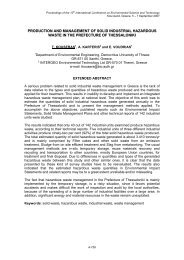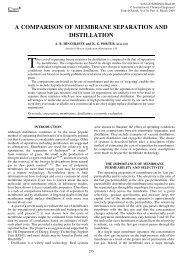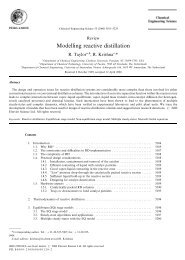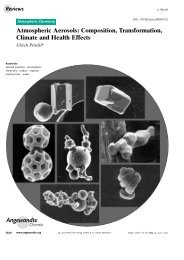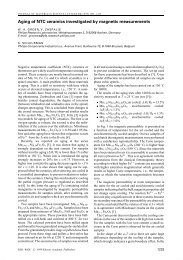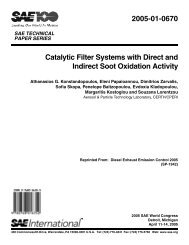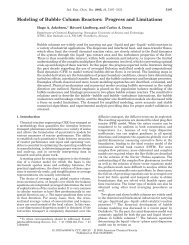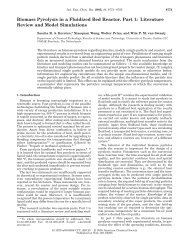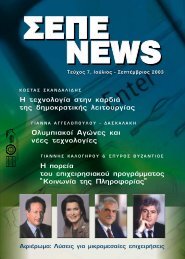RTD info - European Commission - Europa
RTD info - European Commission - Europa
RTD info - European Commission - Europa
Create successful ePaper yourself
Turn your PDF publications into a flip-book with our unique Google optimized e-Paper software.
I N T E R N E T <strong>RTD</strong> <strong>info</strong> Special Science and Media September 2002<br />
27<br />
educational<br />
Posters and explanations of the big bang<br />
created by Cern.<br />
<br />
Many countries are also trying to set up resources adapted to<br />
their own educational system. ‘In Norway, the government is<br />
planning to compile a national knowledge base for schools,’<br />
explains Jon Bing, of the Research Centre for Computing and<br />
Law in Oslo, and there are probably similar initiatives elsewhere.<br />
Nevertheless, he stresses that ‘there remains a great<br />
deal to be done’ when you compare what Europe has achieved<br />
with the scientific metasites of certain major US universities<br />
(see box on page 23).<br />
C<br />
Classroom practices and limitations With<br />
on-line exercises or experiments, educational games, and questionnaires,<br />
there is a growing trend for websites to offer tools<br />
which pupils can use directly. ‘We have one or two computers<br />
connected to the Internet per class and we use them every day,’<br />
explains Jaana Minkkinen, head of the Risti primary school in a<br />
small village in eastern Finland. Classroom Internet sessions can<br />
nevertheless quickly reach the limit of their usefulness, especially<br />
with older pupils. Alain Ritman, who teaches maths at a<br />
French lycée, believes that ‘it is mainly the best students who<br />
benefit most from this. The others amuse themselves but do not<br />
get much from it.’ More ambitiously, teachers can use the<br />
web’s interactivity and electronic mail to allow classes located in<br />
different countries to work together on a common scientific<br />
project, or even have pupils develop their own educational<br />
sites. The Americans are very partial to these science fairs and<br />
other competitions. The <strong>European</strong>s are beginning to follow suit,<br />
but more in the spirit of co-operation than competition.<br />
(1) See <strong>RTD</strong> <strong>info</strong> special issue on Sciences and Young People,<br />
November 2001.<br />
Sites<br />
#Ecsite<br />
http://www.ecsite.net<br />
#Bionet<br />
http://www.ecsite.net/bionet/<br />
#The National Museum of Science and Industry<br />
http://www.nmsi.ac.uk<br />
#NMSI on-line science museum<br />
http://www.sciencemuseum.org.uk/on-line/exhibitions.asp<br />
The first internal<br />
pacemaker was<br />
implanted into<br />
American Paul Zoll in<br />
1952 at St George’s<br />
Hospital.<br />
© Science Museum/<br />
Science & Society<br />
Picture Library<br />
Leila Campbell Taylor<br />
as seen by Lewis<br />
Carroll in 1879 -<br />
Negative belongs to<br />
the National Museum<br />
of Photography, Film<br />
& Television (London).<br />
Electronic game about<br />
space.<br />
© Science<br />
Museum/London<br />
#Smithsonian Institution<br />
http://www.si.edu/<br />
#Ocean Planet Exhibitio<br />
http://seawifs.gsfc.nasa.gov/ocean_planet.html



